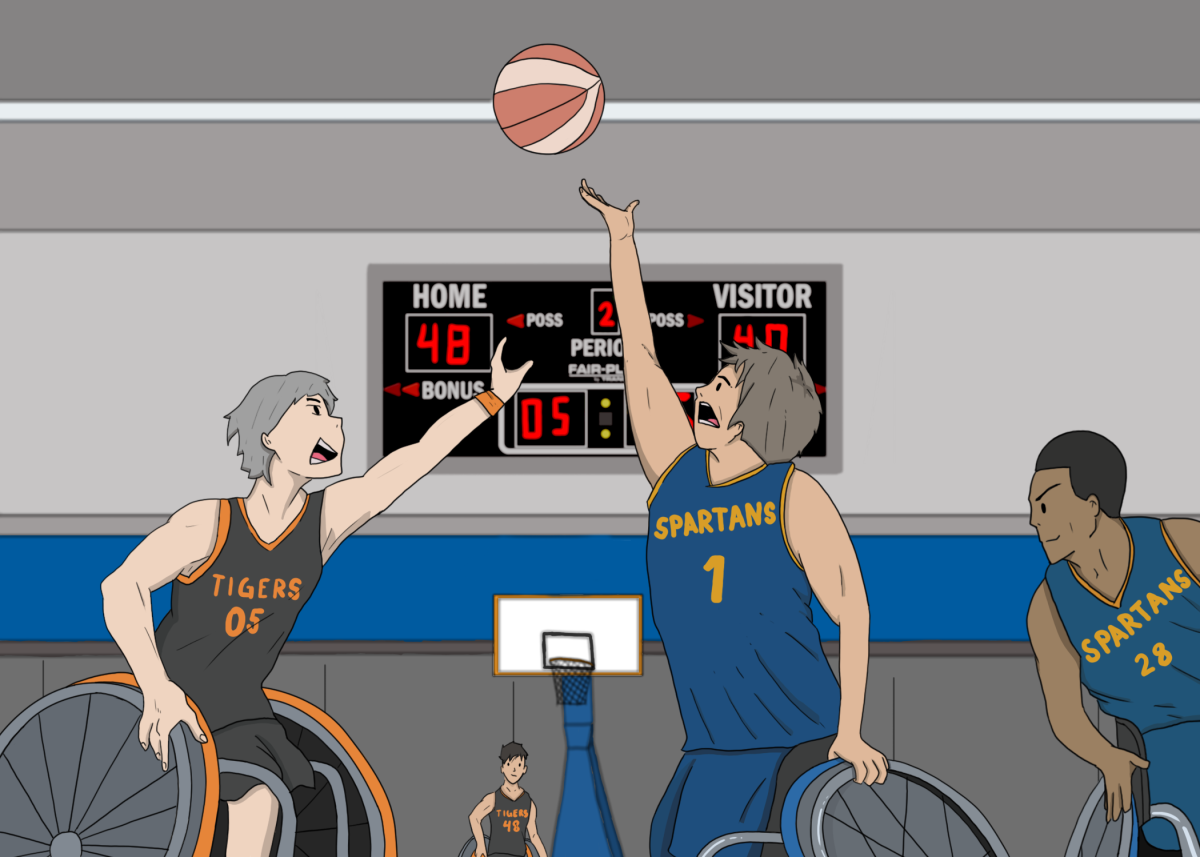
Illustration by Hanz Pacheco
The Institute for the Study of Sport, Society and Social Change at San Jose State hosted a panel Thursday centered around the Americans with Disabilities Act (ADA) of 1990 in relation to the sports world.
The conversation was the second installment of the institute’s “Sport Conversations for Change” series. The panelists were a diverse range of university professors from different parts of the country, adaptive sports participants and collegiate coaches.
The webinar-style event had 106 attendees, 84% of whom are college students according to a poll taken at the event.
Kinesiology senior Leilani Saelaw, who works with the institute as a student intern, said the discussion made her rethink the sports offered at SJSU because she acknowledged there were no adaptive sports for disabled student-athletes.
“SJSU has the resources, we have that big new gym and we should put it to use, not just for people who are able-bodied,” Saelaw said.
Saelaw also said the event inspired her to continue to research athletes with disabilities to give her a different perspective of athletics.
“The passion and life experiences that the panelists have brought awareness to the audience in a raw and emotional way that allows [the audience] to see the world through a lens of an athlete with disabilities,” Saelaw said.
The panelists said during the event that sports are important for people regardless of their level of physical abilities.
“Sport makes us more fully human, which is why sport is a human right for all of us, no matter where we live in our intersectionalities sport makes us who we are,” said Mary Hums, a professor at the University of Louisville Department of Health and Sport Sciences.
According to the United States Department of Labor, the ADA “prohibits discrimination against people with disabilities in several areas, including employment, transportation, public accommodations, communications and access to state and local government programs and services.”
These accommodations extend to large sporting events to allow people with disabilities to attend and participate in athletics.
The panelists shared experiences with their own disabilities and how sports served as a physical outlet for them.
Stephanie Wheeler, women’s wheelchair basketball head coach at the University of Illinois at Urbana-Champaign, said her road to the Paralympics in 2004 and 2008 was made possible because of the ADA.
“In 1999 the University of Illinois was the only university in the entire United States that offered wheelchair basketball,” Wheeler said. “It was the only place I could go be an athlete, be a student and grow and develop to have those same opportunities as my able-bodied peers.”
Panelist Dr. Oluwaferanmi Okanlami, an assistant professor at The University of Michigan Medical School, said conversations about disabilities in athletics are necessary to increase the accessibility to sports for disabled athletes.
“I want people to see that providing accommodations is not doing someone a favor, it’s not charity, it’s creating the access that everyone else has,” Okanlami said. “People that have been historically disadvantaged, disenfranchised and marginalized are finally having their day to say, ‘We want to play too.’ ”